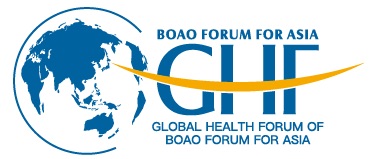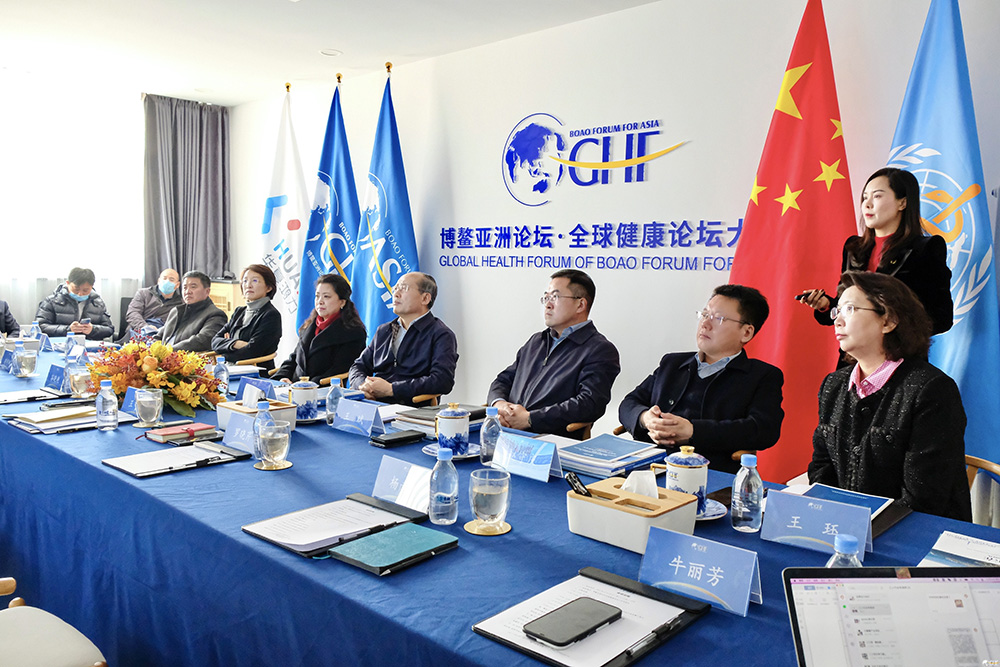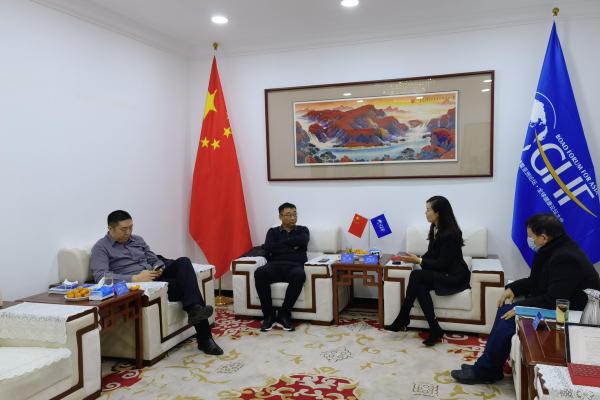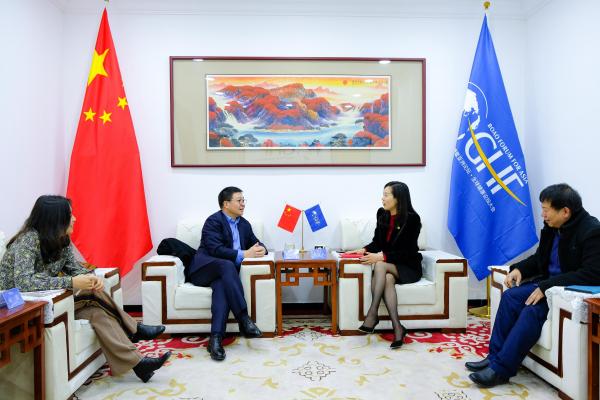On the occasion of the 2021 National People's Congress, Margaret Chan, member of the Standing Committee of the National Committee of the Chinese People's Political Consultative Conference (CPPCC), President of Global Health Forum of Boao Forum for Asia, Vanke Chair Professor at Tsinghua University, Dean of the Vanke School of Public Health at Tsinghua University and Emeritus Director-General of WHO, was interviewed by Nanfang Metropolis Daily (Nandu) for its "2021 National People's Congress Specials - 'Patriots Administer Hong Kong' Principles Interview Series. When talking about the hot topic about the principle of Hong Kong should be administered by patriots, Margaret Chan said that she has never seen a country that allows people who are not patriotic to participate in its governance, and it is only right and proper for patriots to rule Hong Kong.
In addition, Margaret Chan also shared her insights on various aspects such as "global anti-epidemic", "research and development of domestic vaccines" and "construction of Guangdong, Hong Kong and Macao Bay Area".
Nandu: Recently, the principle of "Patriots Administer Hong Kong" has been brought up many times. How do you understand this principle? How do you think it relates to the basic state policy of "one country, two systems"?
Margaret Chan: I fully agree with this principle. In all my years of working in international organizations, I have never seen a country that allows people who are not patriotic to participate in its governance. To my understanding, "Patriots Administer Hong Kong" is not a new requirement, it was already there before, but in terms of publicity, especially at the beginning of the return, people talked more about "one country, two systems".
"One country, two systems" is the cornerstone of Hong Kong's long-term stability, prosperity and stability, and the state has made it very clear that this policy will not change. If we want to ensure that "one country, two systems" in Hong Kong is stable and far-reaching, we definitely need to adhere to the "Patriots Administer Hong Kong". In my opinion, it's that simple. It shouldn't be an issue at all, and it's a matter of course.
Having lived abroad and worked in international institutions for many years, I have seen that it is difficult for a country to achieve anything without a strong political party to guide the people and work for them. Thanks to the central government and the hard work and resilience of the Chinese people to rise to the occasion in tough times, the country has been able to keep progressing. China is not the same as it was decades ago, and we have to remember that. Of course, there are difficulties in all development, but the road we are taking is the road forward, not the road backward.
Nandu: Looking back on the past year, how would you evaluate China's work in epidemic prevention?
Margaret Chan:Covid-19 is the fastest growing and most serious infectious disease in human history, and it is difficult to warn. For new infectious diseases, there are no antibodies, no specific drugs and no vaccines, so early detection, early diagnosis, early isolation and early treatment are the only way to deal with it. Of course, this traditional approach does not always control the situation, and I have seen the country do its best and respond to bring the epidemic under control in stages. Overall, we did a good job.
It was remarkable to mobilize all the people to build the Huoshenshan Hospital, the Leishenshan Hospital and Makeshift Hospital in such a short period of time, and to send medical teams from various provinces and cities to help Hubei. In 2020, when every country's development was stalled or regressed due to the epidemic, we were the only country that had the epidemic under control and resumed work and school.
I like the positioning of our country's epidemic prevention work- to protect people's life and health. The right to life and health is an important part of human rights. I am very happy to see that the country respects science and uses good data to accurately prevent and control the viruses.
Nando: What do you think of China's performance in developing international cooperation regarding the fight against the epidemic?
Margaret Chan: China has also done well in terms of international cooperation in the fight against the epidemic, and the WHO once praised China.. These people have seen and remembered it.
At the beginning of the outbreak, after the two most difficult months, after the domestic epidemic situation improved, we still kept producing masks, protective clothing and other epidemic prevention materials. This is of course both to meet domestic needs, but also to fulfill international obligations - China is the world's second largest economy, a country with a large population, and has the ability to do this in addition to doing its own, and helps other countries that are short of epidemic prevention materials.
Globally, politicizing the Covid-19 epidemic is the biggest difficulty and the biggest "barrier" in controlling the epidemic. I hope that our country will not give in to rumors and slanders, but will continue to demonstrate its role as a great power and fulfill its international obligations.
Nandu: How do you see the efficiency and level of research and development of the new domestic vaccine?
Margaret Chan: It is of great significanc that China shared the genetic sequence of the virus with the world through the WHO soon after the outbreak. Without the genetic sequence of the virus, it would have been difficult for scientists in other countries to conduct vaccine development. In this sense, China has indeed been transparent, fair and fulfilled its international obligations. Although many people do not mention it, it is a fact.
Fauci, anAmerican epidemiologist, also said that if the genetic sequence of the virus had not been published in a timely manner, it would have been impossible for the world to have so many Covid-19 vaccines on the market in about a year.
What is the level of our vaccines? Recently, the State Drug Administration approved the marketing registration application of the inactivated vaccines of Sinopharm and Kexing. I saw that Academician Chen Wei was interviewed by Bai Yansong, and I agree with her that China definitely stands in the first place in the world in terms of vaccine R&D. This is undeniable, and indeed the level is very high. This is indisputable, and indeed the level is very high, which is a reflection of scientific and technological progress.
Nandu: At present, the world epidemic is still severe, and the Mainland has supported Hong Kong to fight the epidemic many times. What is your comment on this?
Margaret Chan: The Covid-19 is a virus that is difficult to warn, and the traditional means of epidemic prevention and control are not enough to stop it. Overall, Hong Kong has done a good job, although there is indeed room to do better.
The country's care for Hong Kong is evident in all aspects, including upgrading testing, building community isolation and treatment facilities, etc. Without the help of the state, Hong Kong would be even worse off. As a Hong Kong resident, I am very grateful.
Nandu: What impact will the vaccination of the Covid-19 vaccine have on the epidemic?
Margaret Chan: The world has high expectations for the Covid-19 vaccine. The vaccine is indeed our most promising means of controlling the epidemic, but there is actually a problem here - even if the vaccine is produced at the highest capacity, it will not be able to meet the needs of about 8 billion people worldwide in the short term, and some of them will definitely have to wait.
Therefore, the limited vaccine must be distributed in a reasonable and scientific way. It is important to protect high-risk groups first, including medical personnel, front-line workers, and the elderly. Each step of the vaccination system must be precise so that the best results can be achieved.
Also, I think we are underestimating the impact of the Covid-19 epidemic. It is a cross-disciplinary crisis that involves all aspects of society, including the economy, people's livelihood, and education, and it is not just the public health system that needs to respond.
Nandu: As a CPPCC member, what proposals have you prepared this year?
Margaret Chan: I have three proposals. One is related to public health, a proposal on the work of the China Hepatitis Harm Elimination Initiative. The other two proposals are related to the new development pattern of the Guangdong-Hong Kong-Macao Greater Bay Area. I am one of the proposers.
Nandu: In the field of health care, in what directions do you think Hong Kong and other cities in the Guangdong-Hong Kong-Macao Greater Bay Area can strengthen their cooperation?
Margaret Chan: The global focus now is on controlling the epidemic, after which I hope that the Mainland and Hong Kong can develop synergistically, complement each other's strengths, cooperate and win together, and deal with the more complex external environment side by side.
Under the epidemic, many countries are reflecting. I am also thinking about how to do a better job of disease prevention, treatment and technological innovation in the future, in terms of education, talents training, and system building. The scientific and technological innovation I am talking about includes traditional Chinese medicine. Although I am a Western doctor, I can say that I have a deep affection for Chinese medicine. We are Chinese, who will do it if we don't?
Therefore, when I was the Director of Health of Hong Kong, I had been committed to promoting the development of Chinese medicine. I hope that the future cooperation in the Greater Bay Area of Guangdong, Hong Kong and Macau will further improve the integration of Chinese and Western medicine.



 Reports
Reports
 Partner application
Partner application Download
Download Hot News
Hot News









